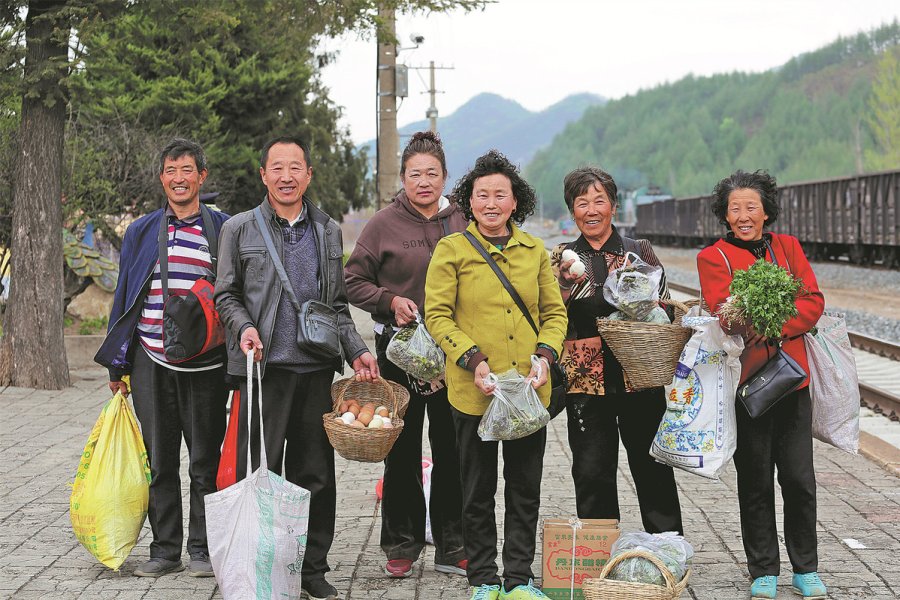May 31, 2023
BEIJING – Though high-speed trains have become popular in China, some older, slower trains are still running to serve passengers with different needs.
Since they began operating in November 2013, two old-fashioned, green-colored slow trains running between Tonghua, Jilin province, and Dandong, Liaoning province, have become known as the “trains of happiness” and have won heaps of praise from residents along the route.
The 321-kilometer rail line has 11 stops, most of which are located in rural areas with less-developed road systems. The trains have become residents’ preferred choice for daily travel or going out to sell their agricultural produce.
“Slow and inexpensive trains are reserved for the convenience of passengers,” said conductor Jin Mingshuo. “We have also expanded service while trying to keep fares low and service quality high.”
In 2019, the passenger transport department of the China Railway Shenyang Group, which operates the trains, set up a market area in the carriages to allow passengers to sell produce during their trips.
For Liu Ende, a retired teacher from Xiwei village in Fenghuangcheng, a county-level city under the administration of Dandong, his sales on the train now make up a large part of his family’s income.
“Every few days, I get on the train at the Shicheng Railway Station with what we have produced or picked in the mountains,” the 79-year-old said. “We sell some items all year round, including grains, eggs, mushrooms and wild vegetables and fruits.”

A group of passengers wait for the train on the platform of a station in Jilin province. CHINA DAILY
Liu said that he can sell a lot quickly and cheaply, thanks to the trains. “It takes me an hour to travel from Shicheng to Fenghuangcheng, and costs only 9 yuan ($1.28) for a single trip,” he said. “Around 80 percent of my goods are sold before I get off the train, and sometimes I can earn over 1,000 yuan.”
He then sells the remainder in the market in Fenghuangcheng.
Liu added that he also has time to purchase daily necessities at the market before he returns home on the train, which he said has become an important mode of transportation for everyone in his area.
“There is only one bus that takes us outside the village every day, and a single-trip ticket costs 16 yuan,” he said. “Before the rail line opened, whenever snow fell on the mountain road in the winter, we usually stayed at home because of safety concerns. So the trains are quite important to everyone in our village.”
The trains also have air conditioning, offering passengers a more comfortable travel experience.

Passengers sell their agricultural produce on the train. CHINA DAILY
In addition, attendants have set up notice boards for passengers featuring information about the produce being sold and provide free supplies such as plastic bags, ropes and packaging tape to carry or secure purchases.
“To provide better service, we also set up a WeChat group in November 2021, and hundreds of passengers have joined,” said Jin, the conductor. “We send train service information via the group and answer inquiries.
“And each time before we open the market area, we tell passengers in advance about what’s available, including the bestselling products.”

Two farmers display vegetables they want to sell on the train. CHINA DAILY
To ensure the fastest delivery of produce from villagers to buyers, the trains also offer a “slow train express” service. Without having to take the train, villagers can arrange for conductors to help them send their goods to a designated delivery station along the route.
“To properly popularize the onboard market and help more villagers along the route, we plan to promote more activities,” Jin said. “During important festivals like National Day and Spring Festival, we will invite internet celebrities to do livestreams on the trains to help villagers promote their produce and tell interesting stories. We hope that farmers will participate and improve their lives.”


